Exocrine pancreatic insufficiency in dogs uk 204240-What is exocrine pancreatic insufficiency in dogs
The most common cause of exocrine pancreatic insufficiency in dogs is chronic acinar atrophy, and second is chronic pancreatitisIn the case of cats, the latter is more common Other causes of exocrine pancreatic insufficiency in dogs are tumors of the pancreas or outside of it that cause an obstruction in the pancreatic duct Genetic predisposition of the diseaseAuthor information (1)School of Veterinary Medicine, University of Bristol, UK iabattersby@bristolacuk BACKGROUND A commercially available ELISA kit for fecal elastase measurement can be used in the diagnosis of exocrine pancreatic insufficiency (EPI) in dogs However, other causes of diarrhea also may affect fecal elastase concentrationDogs with Exocrine Pancreatic Insufficiency (EPI) have a malabsorption and maldigestion condition where the pancreas is no longer producing enough pancreatic enzymes to digest fats, carbohydrates and proteins Because of this, dogs (and also cats) will often present with unexplained weight loss, diarrhea/cowpatty like yellow/pale stools
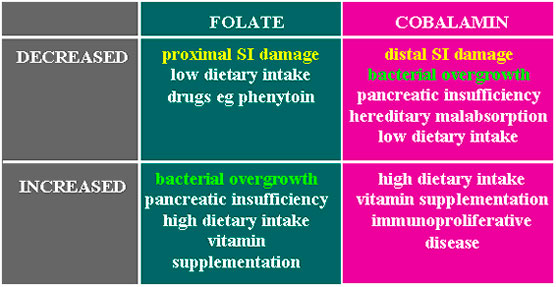
Tli Folate B12 Battlab Veterinary Diagnostic And Clinical Pathology Laboratory Uk
What is exocrine pancreatic insufficiency in dogs
What is exocrine pancreatic insufficiency in dogs-Addressing Exocrine Pancreatic Insufficiency (EPI) in Dogs 23rd Mar 17 To go along with National Puppy Day, we thought we'd feature the experiences of a member of one of our unique groups of customers, owners of dogs identified with exocrine pancreatic insufficiency or EPI Olesia Kennedy is the Executive President of the Epi4DogsEPI or exocrine pancreatic insufficiency is a condition that can affect the gastrointestinal tract of the dog, leading to severe weight loss, diarrhoea, and a failure to maintain weight and condition It occurs in the pancreas of the affected dog, the pancreas being the organ that is responsible for the production of digestive enzymes and




Tli Folate B12 Battlab Veterinary Diagnostic And Clinical Pathology Laboratory Uk
Exocrine pancreatic insufficiency (EPI) is the inability to produce sufficient pancreatic enzymes to digest fats, carbohydrates, and proteins This difficulty in digestion leads to poor absorption of nutrients which commonly causes weight loss despite a normal or increased appetite Affected dogs often have large volumes of pale, fatty fecesThis overview summarizes research performed during the last decades that has had an impact on the diagnosis and management of exocrine pancreatic insufficiency (EPI) in dogs Pancreatic acinar atrophy is by far the most common cause for the maldigestionExocrine Pancreatic Insufficiency (EPI) is a condition which can affect both dogs and cats, but is more commonly seen in dogs An insufficient amount of digestive enzymes are made in the gut These enzymes are normally made and exported from the pancreas (exocrine portion) into the gut to help digestion
The influence of pancreatic secretions on the bacterial flora of the small intestine in 6 dogs was investigated by determining effects of exocrine pancreatic insufficiency on numbers and types of bacteria in duodenal juice, and by examining the subsequent response to dietary supplementation with bovine pancreatic extractThe diagnosis of exocrine pancreatic insufficiency needs to be confirmed by use of laboratory tests The most often used test for dogs is the TLI test but other tests are often used, and are still needed in complicated cases with more than one concurrent disease Laboratory tests for faecal fat (to confirm the presence of steatorrhoeaThe mean age of affected dogs was 91 years Spaniels were the most common breed with CP, representing seven of the 14 dogs in this study CP was histologically severe in nine cases Most dogs showed chronic lowgrade gastrointestinal signs and abdominal pain Five dogs had exocrine pancreatic insufficiency and five dogs had diabetes mellitus
The most common symptoms of Exocrine Pancreatic Insufficiency is chronic diarrhoea, vomiting, a high temperature and a reluctance to eat Some dogs do not experience diarrhoea but will endure very frequent defecation (six times or more per day) in which the faeces are typically large in volume, greasylooking, lightcoloured and foulsmellingCanine exocrine pancreatic insufficiency (EPI) is an alimentary tract disorder causing malabsorption and debilitations in affected individuals This article covers predisposing factors to EPI and response to therapy Although relatively easy to diagnose, knowledge of breed predispositions (and alsoExocrine pancreatic insufficiency (EPI) is a condition in which the pancreas no longer produces adequate amounts of digestive enzymes This usually will not occur until more than 90% of the exocrine pancreas has become nonfunctional Most cases in dogs are caused by pancreatic acinar atrophy, though some may also develop because of chronic



Exocrine Pancreatic Insufficiency Ivis



Dogaware Com Articles Epi Exocrine Pancreatic Insufficiency In Dogs
This website is about the disorder if you go to EPI Dogs you will see photos of dogs with the condition the GSD is very similar to the one at the kennels EPI * Exocrine Pancreatic Insufficiency Overview has anyone ever had exsperience with this #1 kendal, PetForumscouk (07 19)Most dogs and cats with exocrine pancreatic insufficiency can be successfully treated by supplementation with pancreatic enzymes Powder is more effective than tablets, capsules, and especially entericcoated products Initially, 1 teaspoon/10 kg should be given with each meal for dogs and 1 teaspoon/cat with each meal for catsCanine exocrine pancreatic insufficiency (EPI) is a digestive disorder resulting from the insufficient secretion of enzymes from the pancreas This condition is frequently attributed to pancreatic acinar atrophy (PAA) in the dog, in which the enzymeproducing acinar cells are believed to be destroyed by a hereditary autoimmune process (Evans et
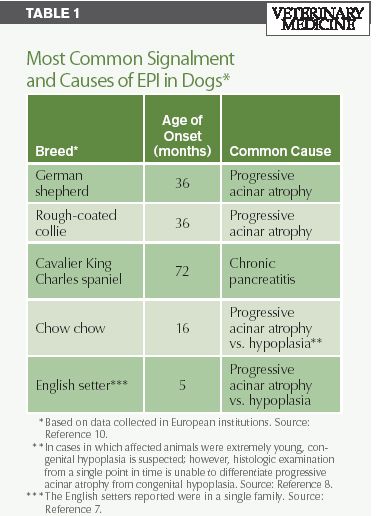



A Quick Review Of Canine Exocrine Pancreatic Insufficiency




Home Jonathan Wood Veterinary Surgeons
If your dog has Exocrine Pancreatic Insufficiency (EPI) it basically means there is a progressive loss of digestive enzymes needed for your dog to break down and absorb their food properly The progressive loss of pancreatic cells that produce these enzymes is most commonly caused by pancreatic acinar atrophyExocrine Pancreatic Insufficiency (EPI) is the inability of the acinar cells of the exocrine pancreas to produce and secrete the 3 necessary enzymes needed to digest food In easy terms the pancreas stops producing the enzymes needed to absorb the goodness from food The three enzymes are Amylase for digestion of carbohydrates (sugars and




Exocrine Pancreatic Insufficiency In Dogs Whole Dog Journal




What Should You Do If Your Dog Is Suffering From Pancreatic Insufficiency Petcarerx




Epi In Dogs




What Is Epi In Dogs Symptoms And Treatment For Exocrine Pancreatic Insufficiency In Dogs




Is Your Dog Suffering From Epi Wag The Dog Uk
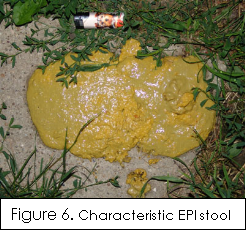



Exocrine Pancreatic Insufficiency Epi




Epi In German Shepherds What You Need To Know




Symptoms Of Exocrine Pancreatic Insufficiency In Dogs Causes And Treatment




Exocrine Pancreatic Insufficiency Epi In Dogs And Cats Youtube
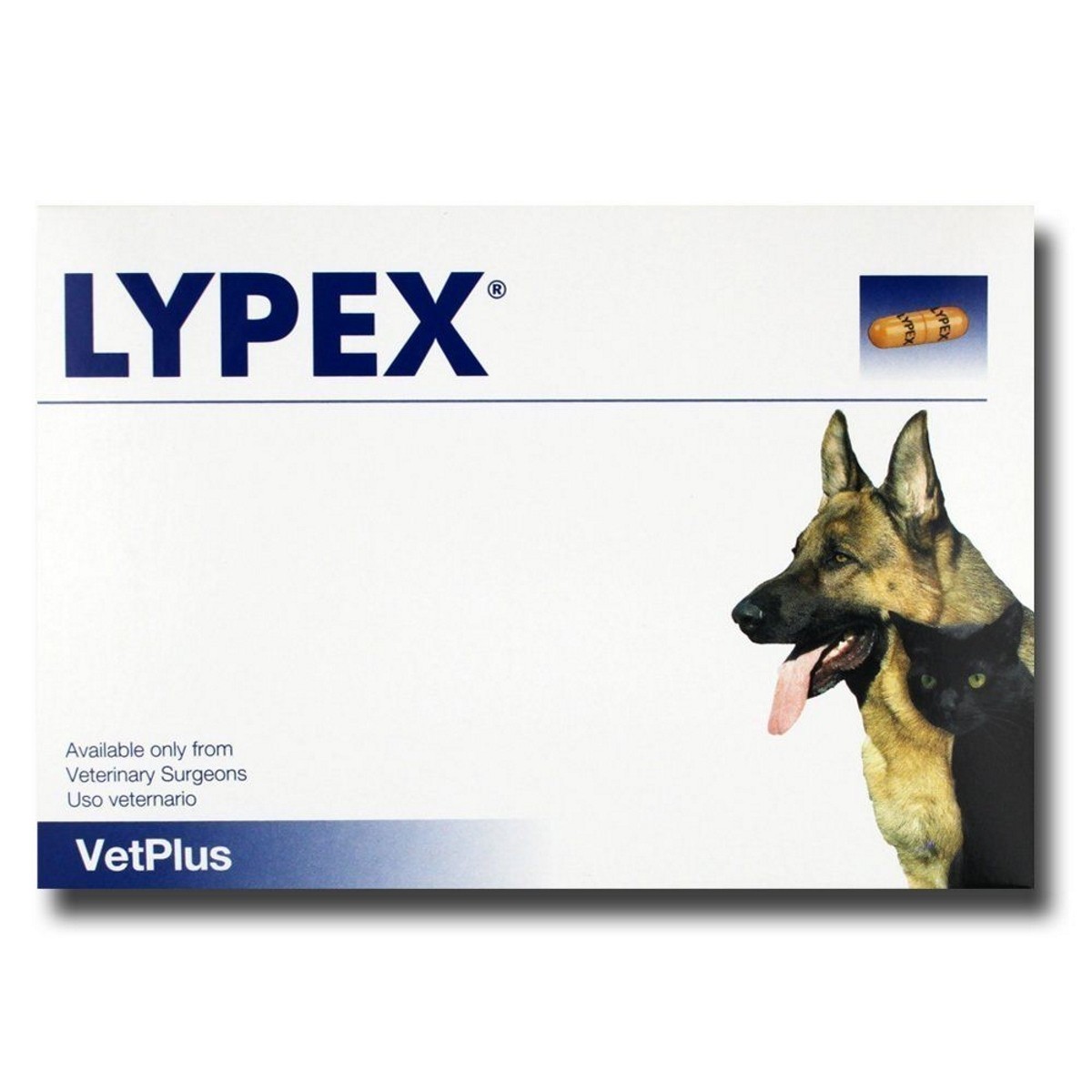



Lypex Pancreatic Enzyme Sprinkle Capsules For Dogs Pack Of 60 From 64 80



Noah S Ark Veterinary Clinic




Tli Folate B12 Battlab Veterinary Diagnostic And Clinical Pathology Laboratory Uk



1
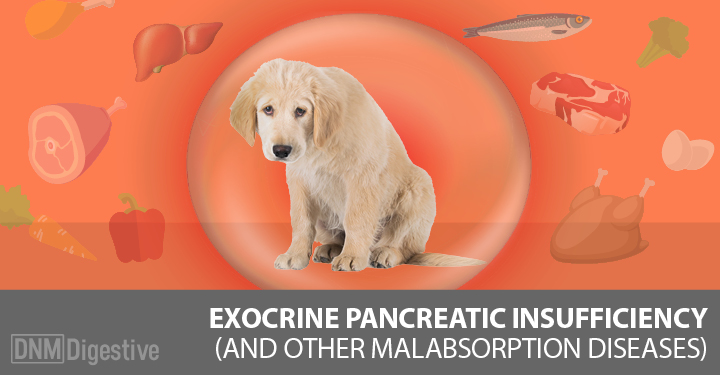



Epi And Other Digestive Diseases In Dogs Dogs Naturally




Rescuing Kira And Epi In Dogs The Last Krystallos




How To Diagnose Exocrine Pancreatic Insufficiency How To




A Blinded Randomised Controlled Trial To Determine The Effect Of Enteric Coating On Enzyme Treatment For Canine Exocrine Pancreatic Insufficiency Topic Of Research Paper In Veterinary Science Download Scholarly Article Pdf




Exocrine Pancreatic Insufficiency In Dogs Youtube




Border Collie Bounced Back From A Fatal Condition To Win A Class At Crufts Dogs Today Magazine




Epi In Dogs




Dog Losing Weight Your Dog Eats Well But Is Getting Thinner Why




Exocrine Pancreatic Insufficiency Epi And The Cavalier King Charles Spaniel



Epi Dog Poop



Dogaware Com Articles Epi Exocrine Pancreatic Insufficiency In Dogs




Epi Exocrine Pancreatic Insufficiency In Dogs Original




Is Your Dog Suffering From Epi Wag The Dog Uk




Related Diseases Merck Animal Health Usa




Exocrine Pancreatic Insufficiency In Dogs Vca Animal Hospital



Exocrine Pancreatic Insufficiency Fetch




Exocrine Pancreatic Insufficiency




Lypex Pancreas Pancreatic Enzyme Deficiency Capsules Supplement Dog Dogs 60 78 11 Picclick Uk




Epi Or Exocrine Pancreatic Insufficiency In Dogs Pets4homes




Diets For Dogs With Pancreatitis




Exocrine Pancreatic Insufficiency In Dogs Vca Animal Hospital
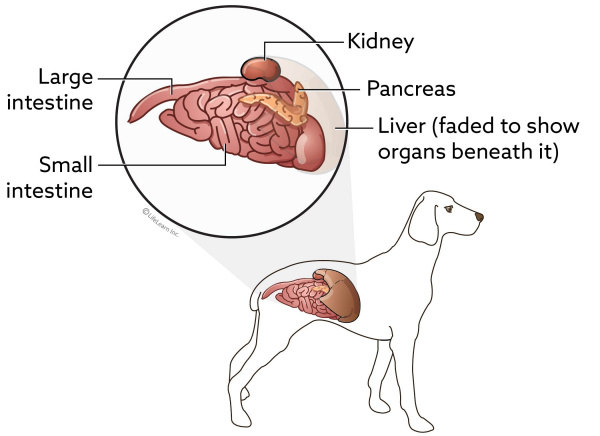



Pancreatitis In Dogs Vca Animal Hospital




Cocker Spaniel Pancreatitis Ufaw




Cbd Oil For Dogs Uk How It Helps Dogs Why What To Buy
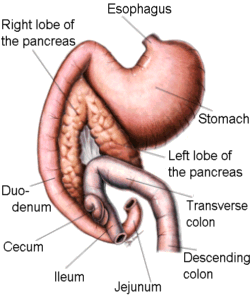



Exocrine Pancreatic Insufficiency Epi And The Cavalier King Charles Spaniel




Exocrine Pancreatic Insufficiency In Dogs Tuftsyourdog




Pdf Protein Losing Enteropathy In A Dog With Lymphangiectasia Lymphoplasmacytic Enteritis And Pancreatic Exocrine Insufficiency
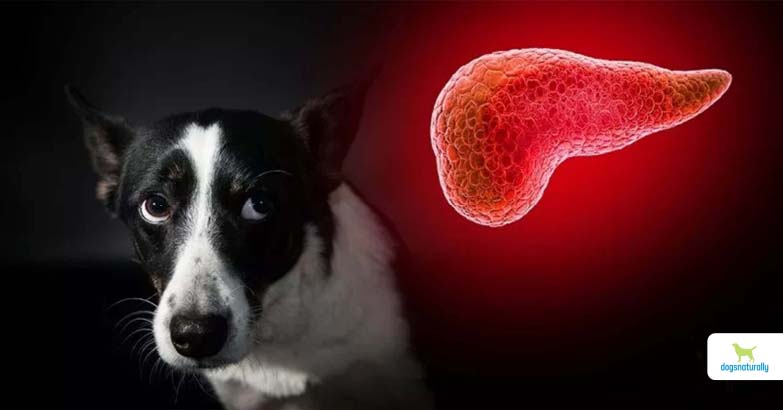



Pancreatitis In Dogs When It S An Emergency Dogs Naturally




Veterinary Partner Vin




A Diarrhoea Case Study Henry Idexx Uk




Testimonials Pan Tenex Enzymes For Dogs




Small Intestinal Bacterial Overgrowth Sibo And Pancreatic Insufficiency Petmd
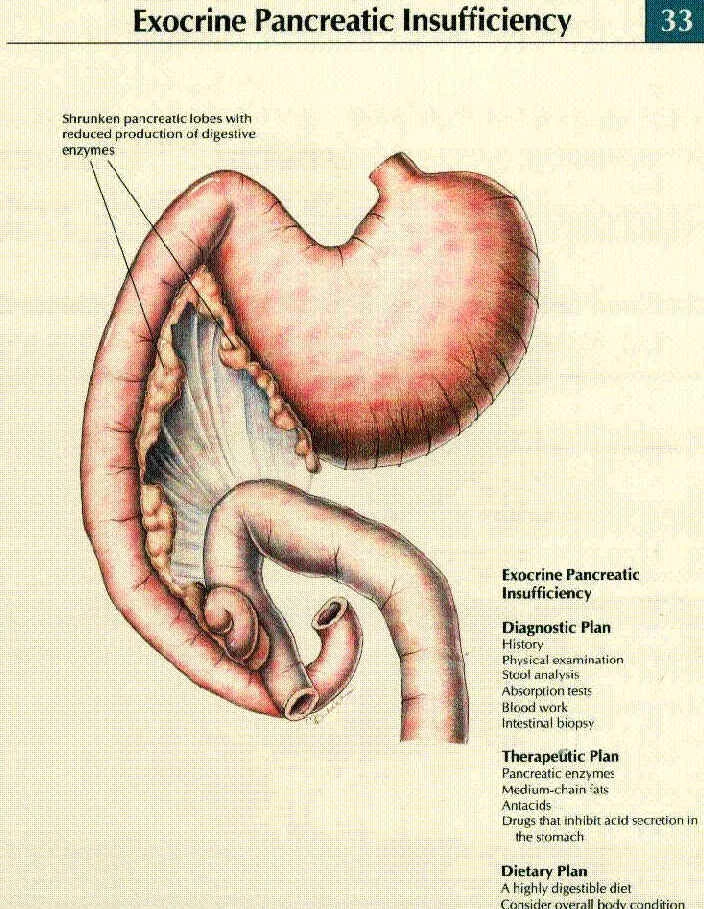



Exocrine Pancreatic Insufficiency Canine Diabetes Wiki Fandom




Epi Exocrine Pancreatic Insufficiency




Is Your Dog Suffering From Epi Wag The Dog Uk




Crowdfunding To Help Fund Epi In Dogs Research Exocrine Pancreatic Insufficiency On Justgiving




Pdf Exocrine Pancreatic Insufficiency In Dogs




Epi In Dogs




Symptoms Of Exocrine Pancreatic Insufficiency In Dogs Causes And Treatment




Exocrine Pancreatic Insufficiency In The Dog Historical Background Diagnosis And Treatment Sciencedirect




Pancreatic Enzyme Capsules Concentrated Enzyme Powder




German Shepherd Exocrine Pancreatic Insufficiency Ufaw




Exocrine Pancreatic Insufficiency Epi In Dogs Youtube




Exocrine Pancreatic Insufficiency Petcoach



1




Exocrine Pancreatic Insufficiency In Dogs Clinician S Brief




Maldigestion Disorder In Dogs Symptoms Causes Diagnosis Treatment Recovery Management Cost



Exocrine Pancreatic Insufficiency Ivis




Exocrine Pancreatic Insufficiency Maldigestion Hunger And Weight Loss




Miniature Schnauzer Pancreatitis And Hyperlipidaemia Ufaw




Dr Jean Dodds Pet Health Resource Blog Exocrine Pancreatic Insufficiency In Dogs And Cats




Vitamin B12 Supplementation In Pets With Epi Petmd




Is Your Dog Suffering From Epi Wag The Dog Uk




Epi4dogs Homepage Managing Epi Non Profit Educational Resource Forum




Exocrine Pancreatic Insufficiency In Dogs Symptoms Causes Diagnosis Treatment Recovery Management Cost




Pancreatitis In Dogs Burns Pet Nutrition




Pancreatic Enzymes For Dogs Cats Pancreatic Enzyme Capsules




Signs Treatment Of Exocrine Pancreatic Insufficiency In Pets Firstvet



Dogaware Com Articles Epi Exocrine Pancreatic Insufficiency In Dogs




Pancreatic Enzymes Pancreatic Exocrine Insufficiency Guts Uk




Epi4dogs Homepage Managing Epi Non Profit Educational Resource Forum
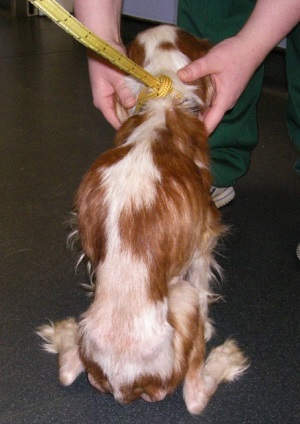



Exocrine Pancreatic Insufficiency Epi And The Cavalier King Charles Spaniel




Epi And Other Digestive Diseases In Dogs Dogs Naturally




Symptoms Of Exocrine Pancreatic Insufficiency In Dogs Causes And Treatment




5 Signs Of Exocrine Pancreatic Insufficiency In Dogs Lovetoknow




Epi Exocrine Pancreatic Insufficiency In Pets Firstvet




Nutrix Quality Dog Food And Cat Food Caring For Your Dog Or Cat



Savma S The Vet Gazette Main Canine Exocrine Pancreatic Insufficiency A Challenging Condition




Health Epi



Dogaware Com Articles Epi Exocrine Pancreatic Insufficiency In Dogs




Epi4dogs Homepage Managing Epi Non Profit Educational Resource Forum




Tli Folate B12 Battlab Veterinary Diagnostic And Clinical Pathology Laboratory Uk




Exocrine Pancreatic Insufficiency In Dogs And Cats Online Support For Veterinarians And Owners Semantic Scholar




Exocrine Pancreatic Insufficiency In Dogs Vet Focus




Epi The Wasting Disease That Many Vets Overlook




Epi In German Shepherds What You Need To Know




Exocrine Pancreatic Insufficiency In Dogs Whole Dog Journal




Tooth Brushing For Dogs Well Their Owners Unless You Have A Really Talented Dog Chemeyes Pet Health




Lypex Pancreas Pancreatic Enzyme Deficiency Capsules Supplement Dog Dogs 60 78 11 Picclick Uk




Pancreatitis In Dogs A Vet S Guide Petsradar




About Us Crown Vets In Inverness Crown Vets



Dogaware Com Articles Epi Exocrine Pancreatic Insufficiency In Dogs




Exocrine Pancreatic Insufficiency In Dogs Veterinary Practice




Epi4dogs Epi Articles Managing Epi Non Profit Educational Resource Forum




Epi4dogs Epi In Brief Managing Epi Non Profit Educational Resource Forum



3




Epi4dogs Epi In Brief Managing Epi Non Profit Educational Resource Forum
コメント
コメントを投稿